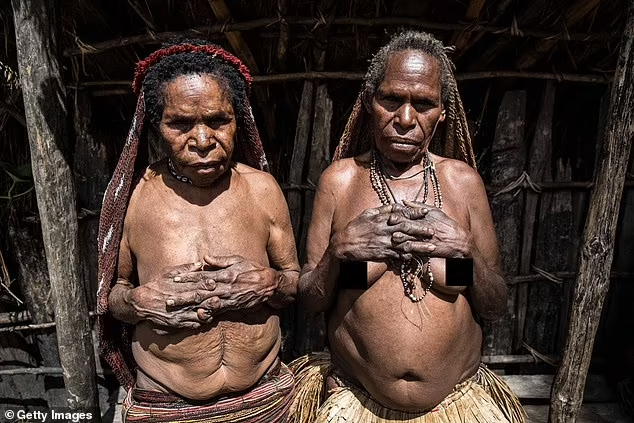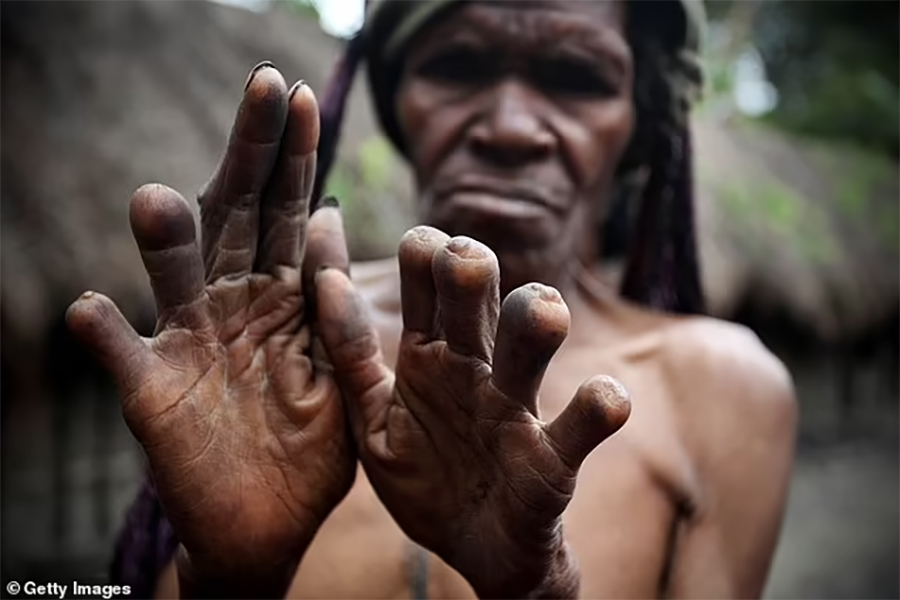In the highlands of Papua, Indonesia, the Dani tribe practices a remarkable yet grim tradition to honor their deceased loved ones. This custom involves the amputation of women’s fingers as a profound expression of grief. Rooted in deep cultural beliefs, this practice symbolizes the emotional pain and respect for the departed.
Cultural Significance
The Dani believes that the physical pain of losing a finger parallels the emotional pain of losing a loved one. A close relative ceremonially amputates the finger using simple tools like a knife or stone, then often cauterizes the wound with fire to prevent infection and stop bleeding.
Governmental Stance and Continuation
Although this ritual has been banned by the Indonesian government, it persists among some members of the tribe, especially the elderly, who view it as an essential part of their cultural heritage.
Efforts to discourage the practice have been met with resistance, as it is deeply intertwined with their identity and traditions.
Photographic Insight
Photographer Teh Han Lin has captured the essence of this practice, providing a visual exploration of its impact on the Dani community. His work sheds light on the resilience of cultural practices in the face of modernization and legal restrictions.
The finger amputation tradition of the Dani tribe stands as a testament to the lengths to which humans go to express their sorrow and respect for the dead. It reflects a unique cultural narrative that, despite governmental efforts to end it, continues to be a significant part of the Dani’s way of life.
image is Copyright of: @Getty images





